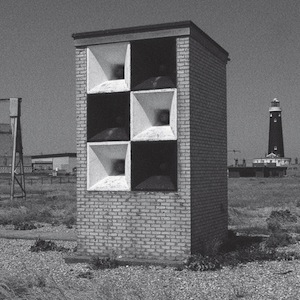Zed Bias Boss
A certain cool, removed aesthetic has always permeated Zed Bias‘ catalog. He’s been a key […]

A certain cool, removed aesthetic has always permeated Zed Bias‘ catalog. He’s been a key player in the UK garage and broken-beat scene for over a decade, and has graced both the UK charts and underground with equal poise and capability. On his latest full-length for Loefah’s refinedly dirty Swamp 81 imprint, Zed Bias wears a well-earned and well-represented title, Boss.
The opening track, “Eingang,” sets a clear precedent for what we’ve come to expect from Zed Bias—finely tuned production that is sparse but forceful, and elegantly funky. A rhythmically cut vocal sample rides a simple bassline of monophonic stabs, with the occasional reverb-drenched chord extending out to produce tension. The builds are finely tuned and even at its most pared-down points, “Eingang” is impossible to sit still to.
What makes Zed Bias’ music so potent is the stuff that separates functional producers from actual artists; he effortlessly intones the core elements of a genre or style while subtly shifting them to stake his own claim. On “Ye,” we hear familiar bits of the ‘Think’ break, chopped and flanged; it’s not a new idea per se, but Bias does it so delicately and precisely that the result is current and fresh.
If anything, his subtlety may require a little bit of extra effort on the listener’s behalf. It’s not so much that one needs to sit down and pore over the minutiae to enjoy Boss, but more that the album format speaks to at-home listening, which these days often means laptop speakers or earbuds. That won’t really work for this record. Without some responsive sub bass, a song like “Boss Skank” could sound like a simple looped beat, and though the album is very tidily mastered, the record is at its best with some air to move around. Knowing this, it wouldn’t be absurd for one to ask if Boss would have worked better as a series of individual releases. Perhaps that was the thinking behind pressing it on an ambitious (translation: pricey) 4×12″ heavyweight vinyl format.
Questions of format aside, “Tug” is a real standout, with an atonal base of a resonant staccato bell over a moving 4/4 stomp, offset by the odd bit of octaving bubbly pops and a half-open hi-hat ride. A synth chord alternately wavering and falling in pitch closes phrases of the track and leaves a nice space in the mix when it goes missing for a few bars. The digital format of Boss also features an alternate mix of “Tug” that features the same elements and phrasing with a slightly different affectation—it’s a bit grittier and less minimal, but it offers an interesting glimpse into a less refined take on the composition.
Boss doesn’t leave much to be desired—it’s a polished work that takes a tour through an established artist’s contemporary work and delivers from front to back. It’s thinking-man’s club music with a healthy dose of soul and style, and like much of Zed’s catalog, it’s bound to age well.

